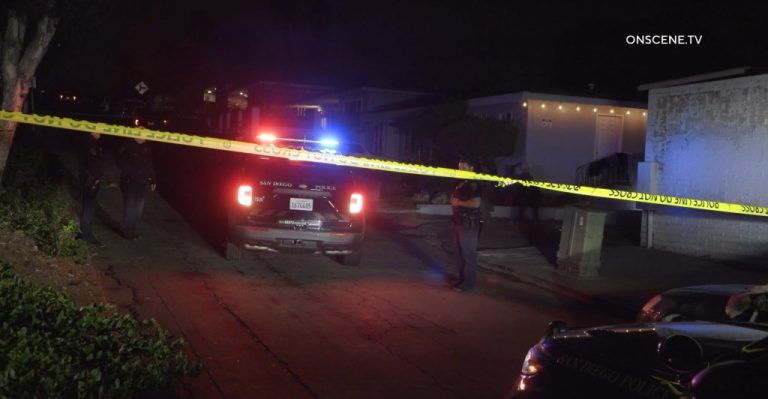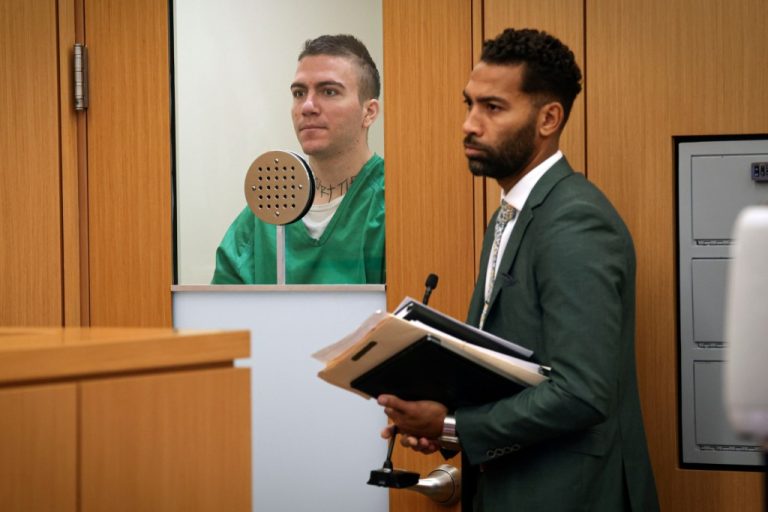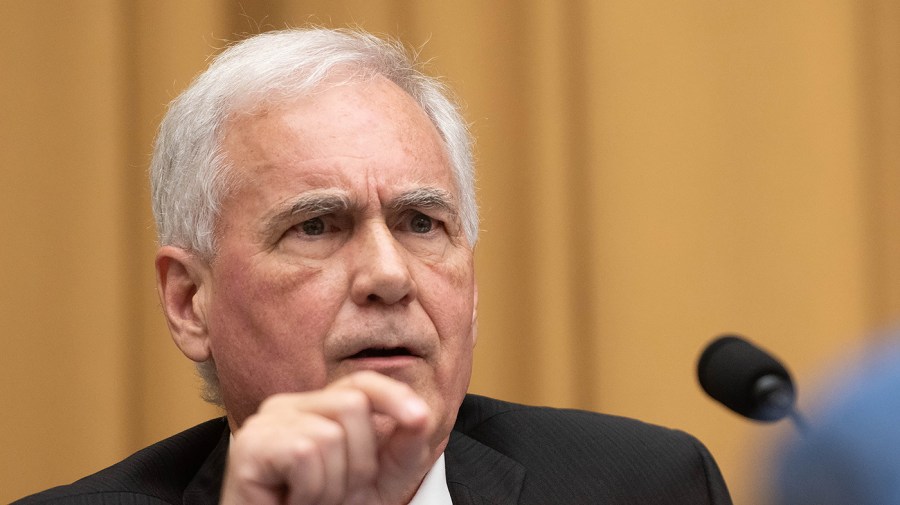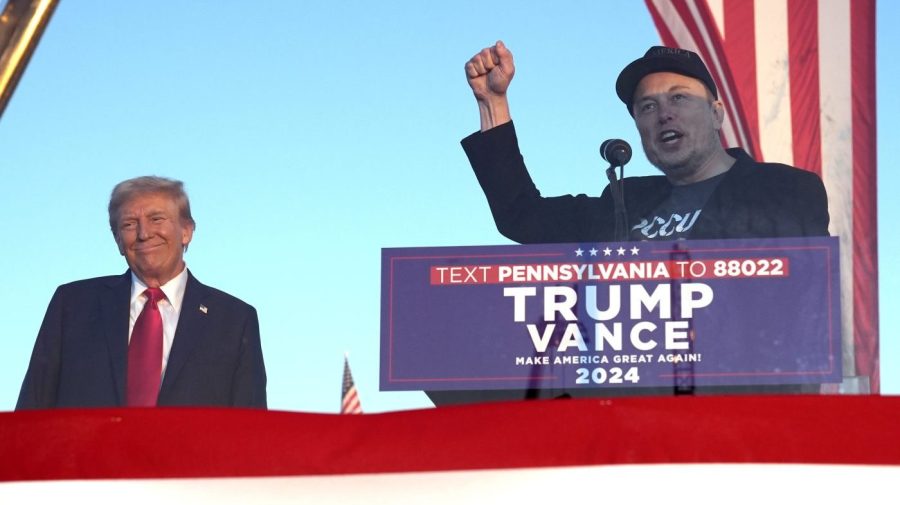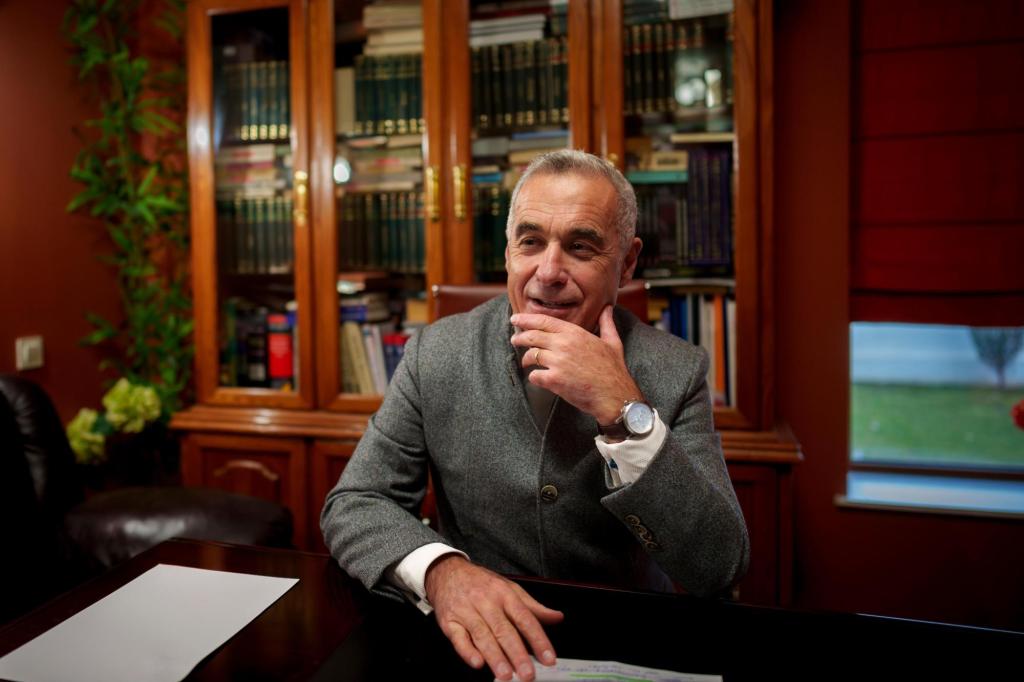

By STEPHEN McGRATH, Associated Press
BUCHAREST, Romania (AP) — A top Romanian court on Friday annulled the first round of the country’s presidential election, days after allegations emerged that Russia ran a coordinated online campaign to promote the far-right outsider who won the first round.
The Constitutional Court’s unprecedented decision — which is final — came after President Klaus Iohannis declassified intelligence on Wednesday that alleged Russia organized thousands of social media accounts to promote Calin Georgescu across platforms such as TikTok and Telegram.
The court, without naming Georgescu, said that one of the 13 candidates in the Nov. 24 first round had improperly received “preferential treatment” on social media, distorting the outcome of the vote.
Georgescu denounced the verdict as an “officialized coup” and an attack on democracy, as did the second-place finisher, reformist Elena Lasconi of the center-right Save Romania Union party.
Despite being an outsider who declared zero campaign spending, Georgescu emerged as the frontrunner who was to face Lasconi in a runoff on Sunday. Some 951 voting stations had already opened abroad on Friday for the runoff for Romania’s large diaspora, but had to be halted.
Iohannis said he would remain in office until a new presidential election could be rerun from scratch. On Dec. 1, one week after the first round of the presidential race, Romania also held a parliamentary election, which saw pro-Western parties win the most votes but also gains for far-right nationalists. Iohannis said that once the new government is formed, the date of the new presidential vote would be set.
On Wednesday the president had released intelligence files from the Romanian Intelligence Service, the Foreign Intelligence Service, the Special Telecommunication Service and the Ministry of Internal Affairs.
In a televised statement Friday, Iohannis said he was “deeply concerned” by the contents of the intelligence reports. “Intelligence reports revealed that this candidate’s campaign was supported by a foreign state with interests contrary to Romania’s. These are serious issues,” he said.
The Constitutional Court in its published decision cited the illegal use of digital technologies including artificial intelligence, as well as the use of “undeclared sources of funding.” It said one candidate received “preferential treatment on social media platforms, which resulted in the distortion of voters’ expressed will.”
Georgescu slammed the verdict as putting “democracy is under attack.”
“I have only one pact … with the Romanian people and God,” he said in a video statement. “We are no longer talking about fairness but rather about a mockery that betrays the principles of democracy … It is time to show that we are a courageous people who know that the destiny and rights of the Romanian nation are in our hands.”
Lasconi also strongly condemned the court’s decision, saying it was “illegal, immoral, and crushes the very essence of democracy” and that the second round should have gone forward.
“Whether we like it or not, from a legal and legitimate standpoint, 9 million Romanian citizens, both in the country and the diaspora, expressed their preference for a particular candidate through their votes,” she said.
“I know I would have won. And I will win because the Romanian people know I will fight for them, that I will unite them for a better Romania,” she added.
Some 9.4 million people — about 52.5% of eligible voters — had cast ballots in the first round in this European Union and NATO member country. The president serves a five-year term and has significant decision-making powers in national security, foreign policy and judicial appointments.
Most surveys had predicted the top candidate would be Prime Minister Marcel Ciolacu of the ruling center-left Social Democrats. They indicated that second place would be claimed by either Lasconi or the leader of the far-right Alliance for the Unity of Romanians, George Simion.
As the surprising results came in with Georgescu on top, and Lasconi narrowly beating Ciolacu, it plunged the political establishment into turmoil.
The same court last week ordered a recount of the first-round votes, which added to the myriad controversies that have engulfed a chaotic election cycle. Following a recount, the court then validated the first-round results on Monday.
Many observers have expressed concerns that annulling the vote could trigger civil unrest. The court said Friday that its decision was meant “to restore citizens’ trust in the democratic legitimacy of public authorities, in the legality and fairness of elections.”
Simion, of the far-right party, said the development was a “coup d’état in full swing” but urged people not to take to the streets. “We don’t let ourselves be provoked, this system has to fall democratically,” he said.
Cristian Andrei, a political consultant based in Bucharest, said the court’s decision amounts to a “crisis mode situation for Romanian democracy.”
“In light of the information about the external interference, the massive interference in elections, I think this was not normal but predictable, because it’s not normal times at all, Romania is an uncharted territory,” he told The Associated Press. “The problem is here, do we have the institutions to manage such an interference in the future?”
Georgescu’s surprising success left many political observers wondering how most local surveys were so far off, putting him behind at least five other candidates before the vote.
Many observers attributed his success to his TikTok account, which now has 6 million likes and 541,000 followers. But some experts suspected Georgescu’s online following was artificially inflated while Romania’s top security body alleged he was given preferential treatment by TikTok over other candidates.
In the intelligence release, the secret services alleged that one TikTok user paid more $381,000 (361,000 euros) to other users to promote Georgescu content. Intelligence authorities said information they obtained “revealed an aggressive promotion campaign” to increase and accelerate his popularity.
Georgescu, when asked by the AP in an interview Wednesday whether he believes the Chinese-owned TikTok poses a threat to democracy, defended social media platforms.
“The most important existing function for promoting free speech and freedom of expression is social media,” he said.
Originally Published:


